01:23
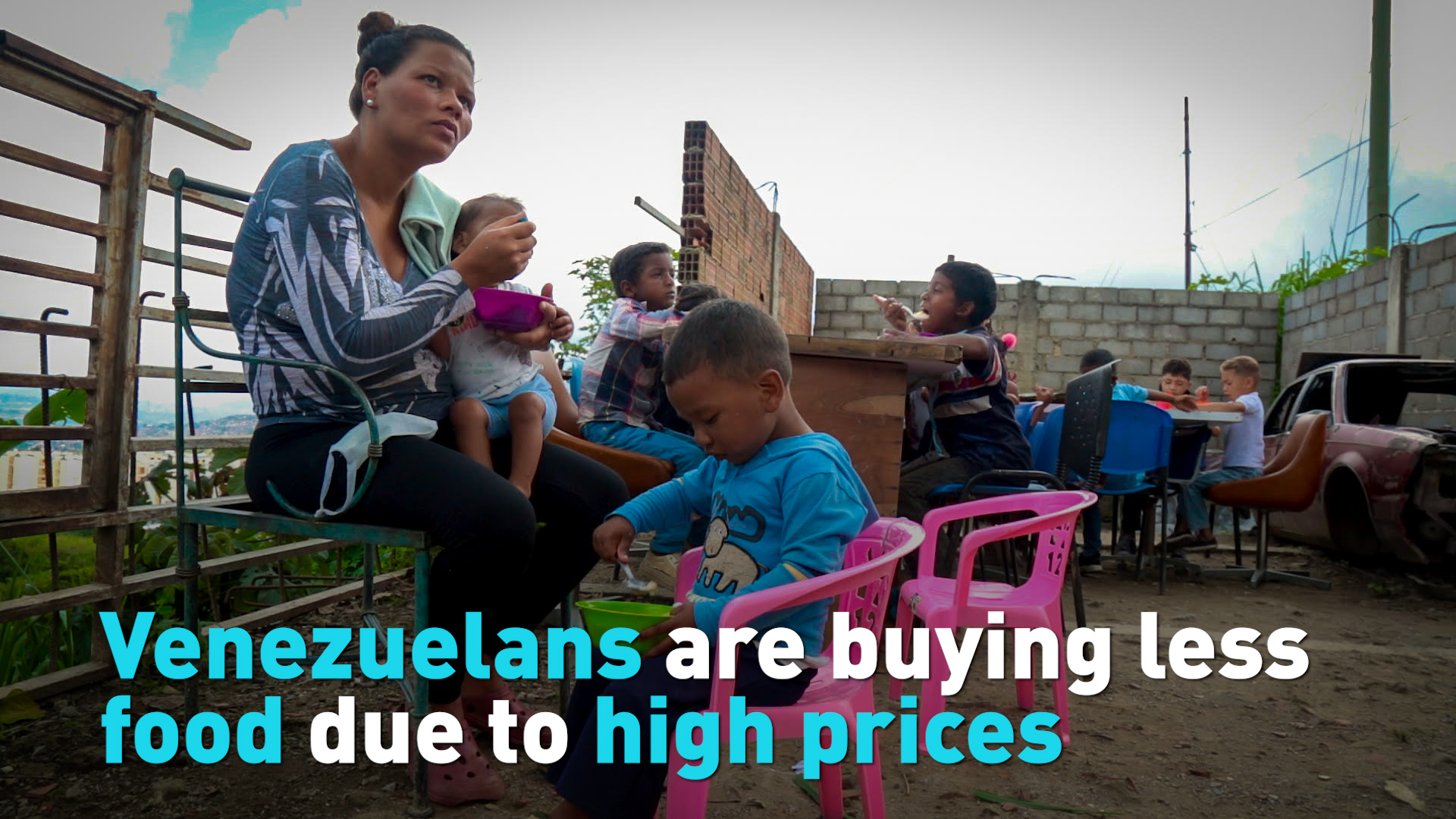
Venezuelans are spending up to a third less on food than they did two years ago, according to a recent academic study.
Cutting back on groceries is one way to cope with the country’s economic crisis.
At food markets, Venezuelans are making hard choices. They’re leaving behind some products to fit their budgets.
Yaramara Ramos, 24, lives in a single room in Las Minas de Baruta, in the Caracas Metropolitan Area. As a mother of three, her daily priority is to feed her children.
In her household, her husband brings in the only income from working odd jobs. She has a small refrigerator to preserve the family’s groceries for the week and medicine for a son who suffers from hemophilia.
"To buy everything you need at once is extremely hard. Everything must be bought little by little trying to economize," Ramos said.
Yaramara recognizes her family's eating habits have changed. She says she can never budget enough money for food.
"What costs you one dollar today, tomorrow costs one dollar and a half, so you need to cut, slowly cutting your expenses each day," she said.
Venezuela was already suffering from a deep economic crisis. The COVID-19 pandemic has made the situation worse.
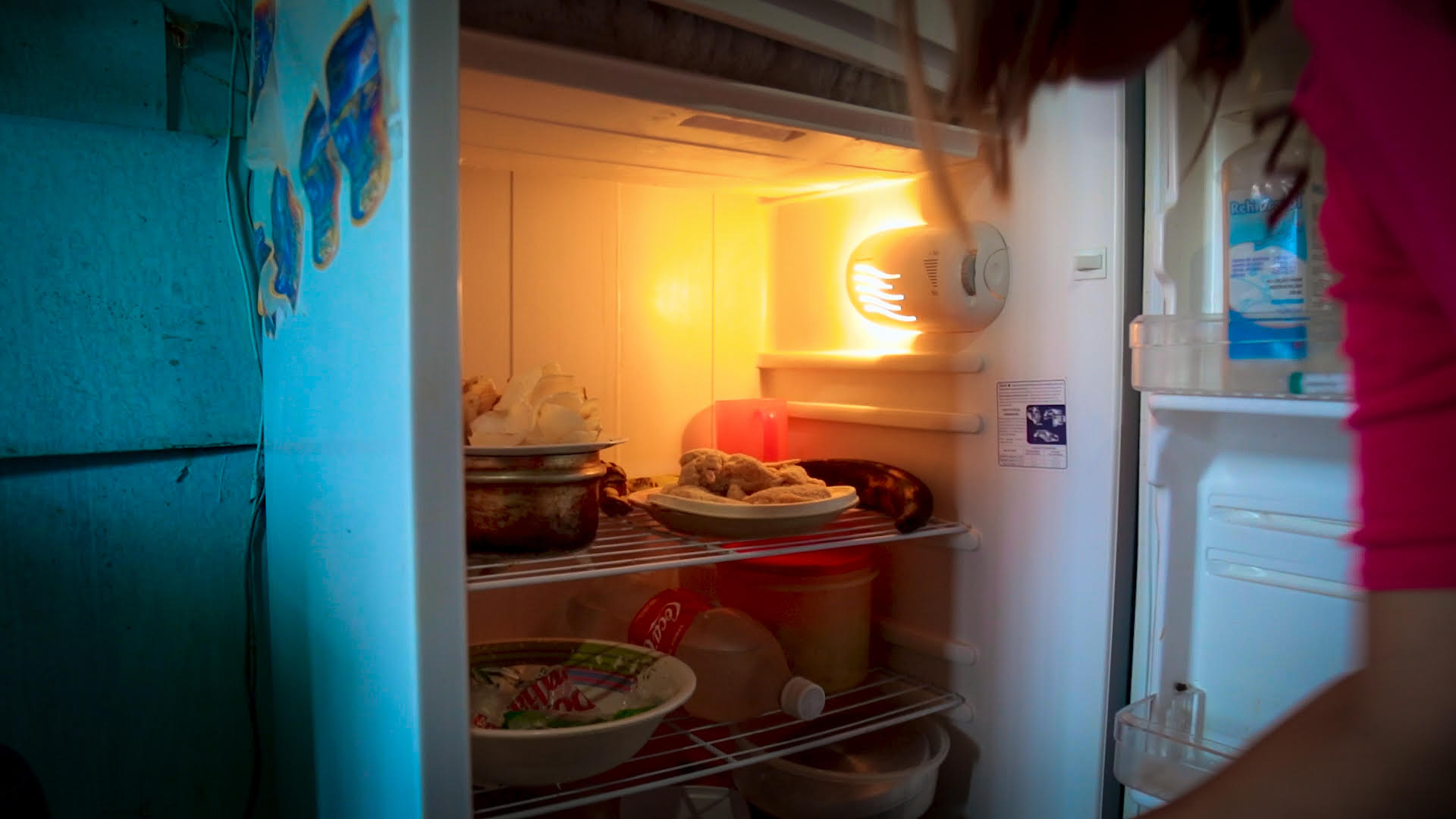
Nutritionists are worried about the long-term effects of a poor diet on the most vulnerable populations.
Nutritionists are worried about the long-term effects of a poor diet on the most vulnerable populations.
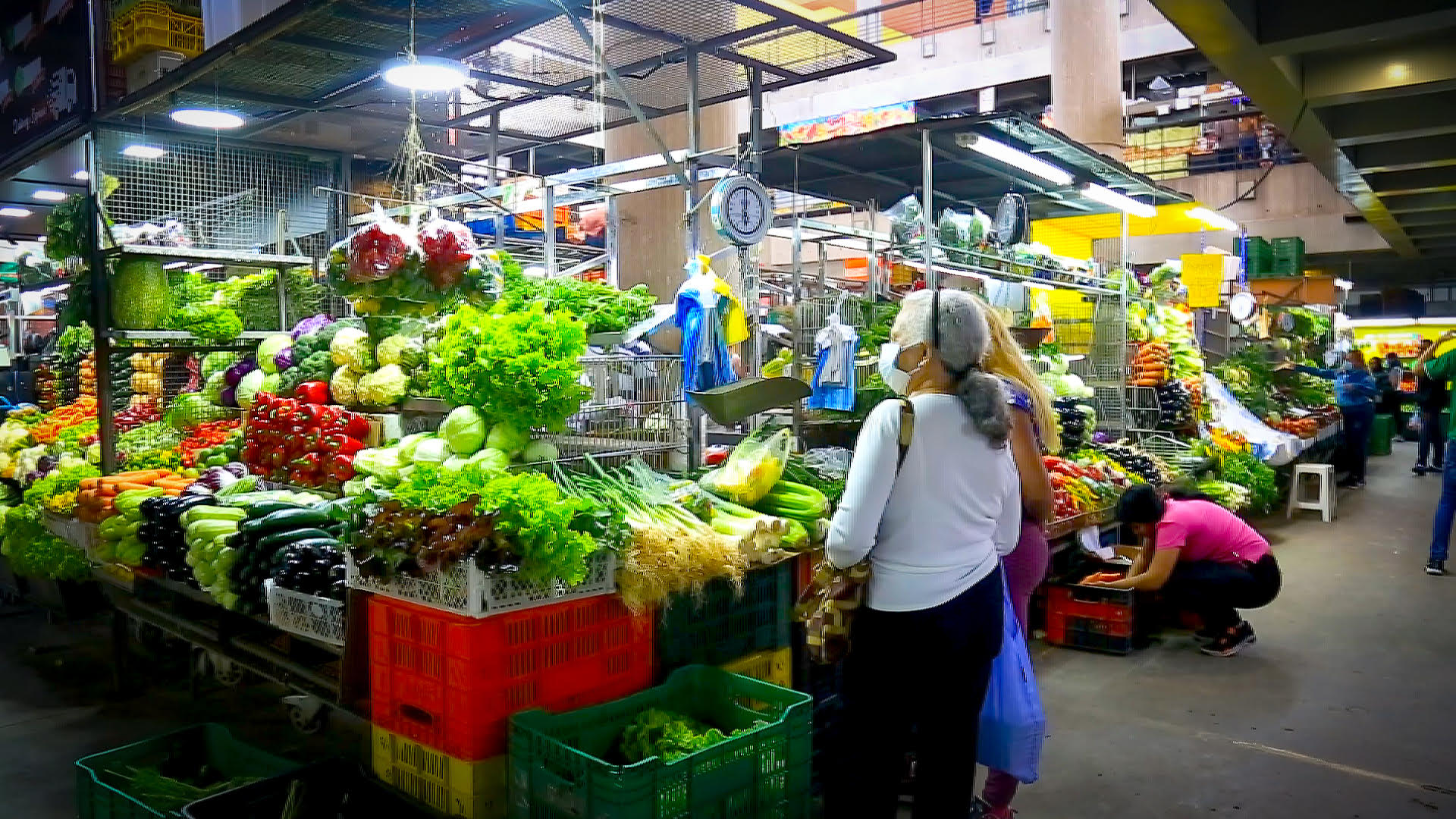
Cutting back on groceries is one way to cope with the country’s economic crisis.
Cutting back on groceries is one way to cope with the country’s economic crisis.
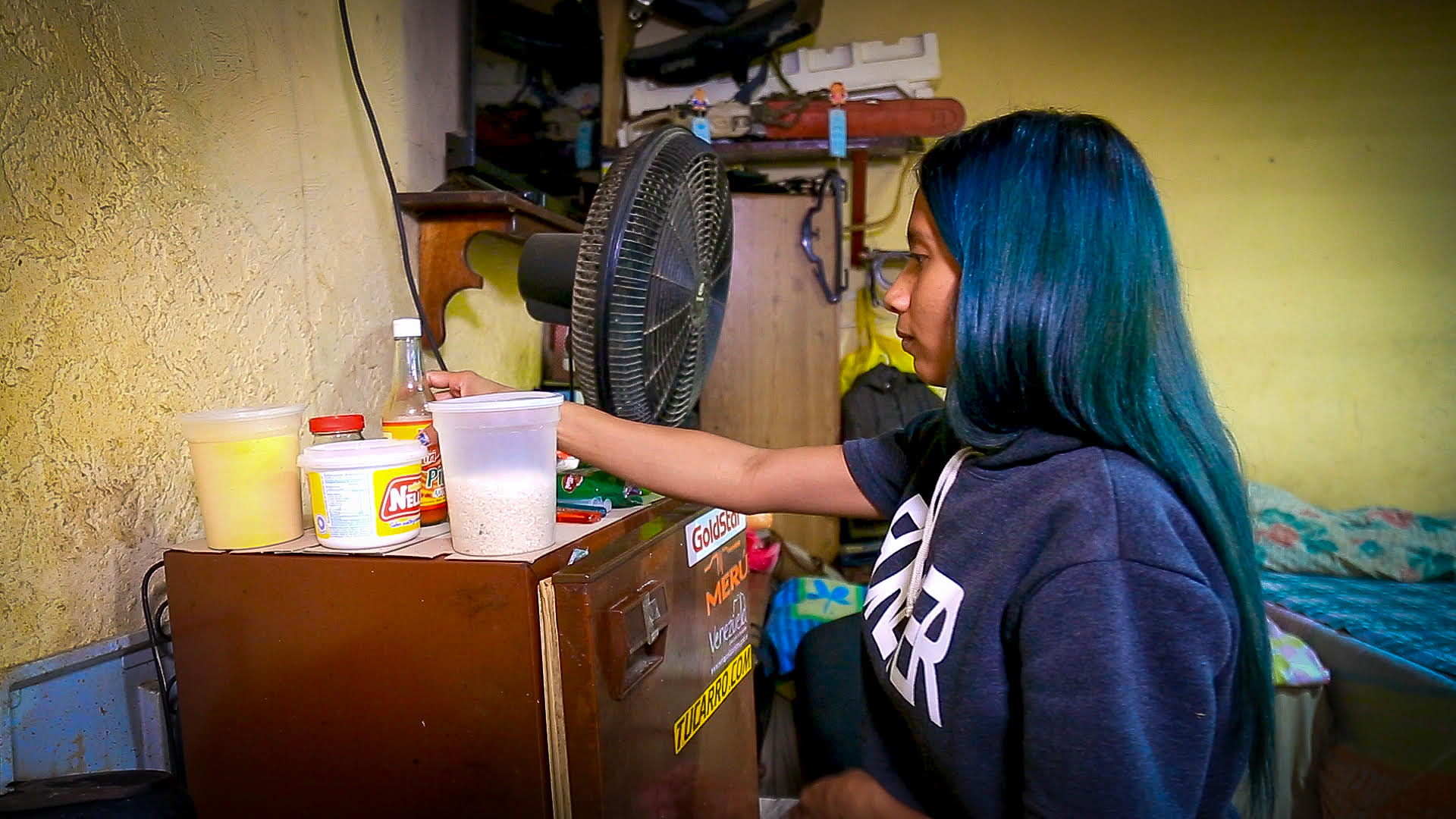
Venezuelans are spending up to a third less on food than they did two years ago.
Venezuelans are spending up to a third less on food than they did two years ago.
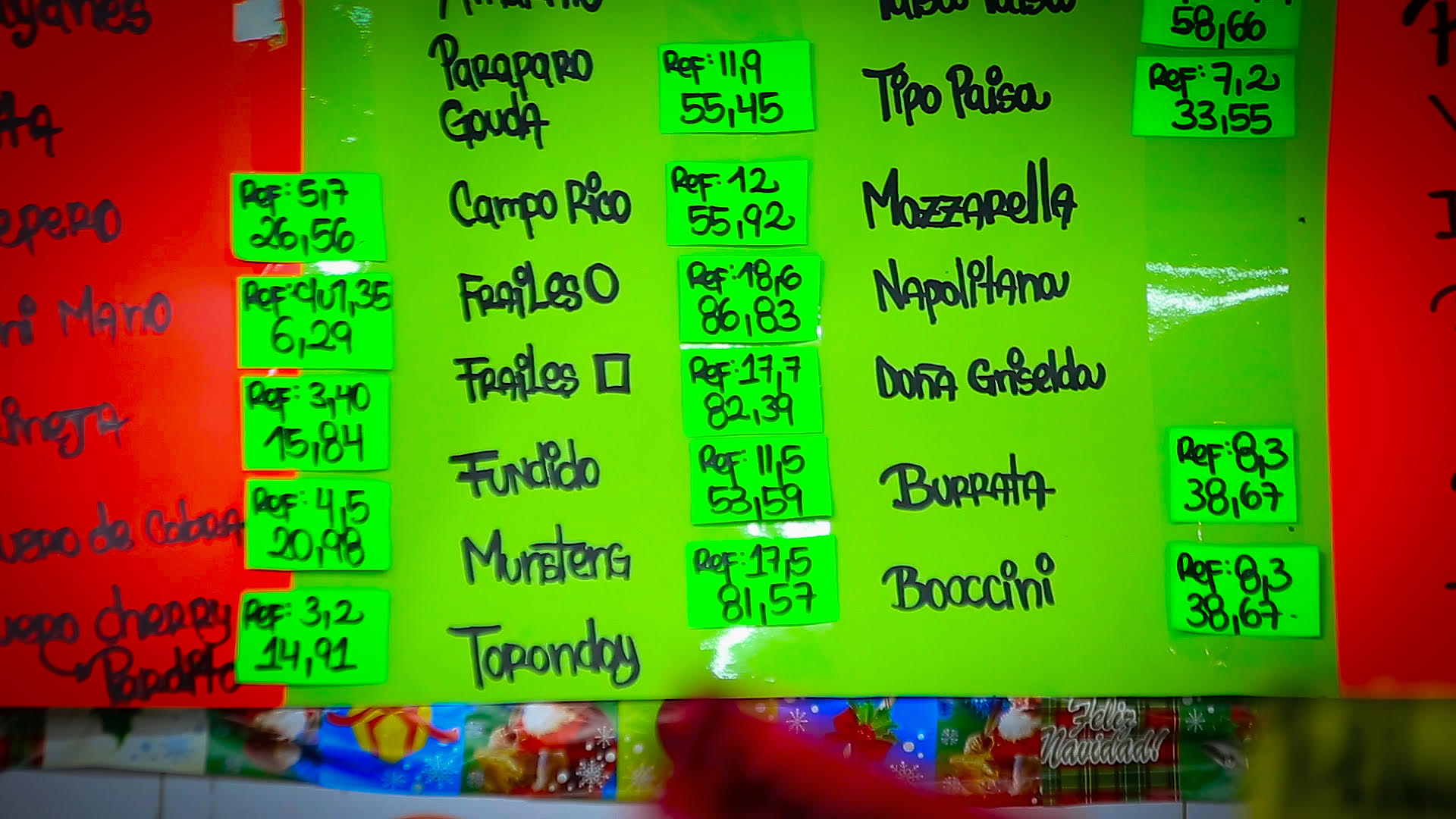
At Caracas’s food markets, customers say prices change frequently and are hard to keep up considering the current salaries.
At Caracas’s food markets, customers say prices change frequently and are hard to keep up considering the current salaries.
Scroll left and right to view gallery above.
According to an academic study conducted by Andrés Bello Catholic University, spending on food has dropped between 24 percent to 34 percent since the COVID-19 pandemic began.
Access to a nutritious and diversified diet has become increasingly expensive. That means many people are missing essential components like protein.
Eating a piece of beef or chicken, or cheese can be a luxury for many Venezuelans. Spending on groceries like fresh fruit and vegetables has also dropped dramatically.
At Caracas’s food markets, customers say prices change frequently and are hard to keep up considering the current salaries.
"Everybody is thinking about how to buy food because no one has enough money. No matter who you ask… it's hardly enough even just for food with our miserable wages," said Caracas resident Victoria de Rojas.
Nutritionists are also worried about the long-term effects of a poor diet on the most vulnerable populations like children and the elderly.
Nutritionist Arianna Araujo says the most important question is what this could mean for their immune systems during a global pandemic.
"A person who is well-fed does not get a free pass from COVID-19, but the evolution of the illness is going to be completely different. The severity of the illness is not the same in a person who is well-fed in comparison to another who is not," Araujo said.
Many Venezuelans are trying to stretch what’s available to guarantee food for their families.
Check out The China Report, our new weekly newsletter. Subscribe here!

